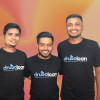Turning fintech into digital bank

Fintech is a buzz word or a disruption or an innovation in this transforming world. We have always seen such debate among different types of experts or colleagues from financial industries at home and abroad. But we can't ignore its rapid disruption towards financial inclusion and growth.
Bkash is the example of our home-grown company that is now shared across the world by fintech experts. Wing, a similar fintech in Cambodia, has recently transformed to a digital bank or neo-bank model from the typical agent distribution model which can be a good learning for us considering our aspirations towards digital bank.
When I first joined this fintech back in 2021 in Cambodia, I was given two major assignments: how to launch it as a bank in the market to provide banking services across all segments and how to transform over-the-counter (OTC) customers into mobile app users considering their financial literacy and smartphone penetration.
Among 100 percent total lifetime registered users, only 7.69 percent were monthly active users, out of which almost 70 percent were OTC users. The major services were domestic money transfer, international money transfer, telco airtime top-up and merchant payments.
The most interesting part was 70 to 80 percent revenue generated from corporate or payroll clients and the rest from individual customers. In this context, we wanted to create a bank to serve every Cambodian through digital platforms which was totally a mammoth challenge considering the business model and operations.
Another important point to understand is that fintech revenue was generated from transactions made by the users whereas in the bank revenue generated from the cash deposits, loans and cards or payments services. The whole organisation had to go through a major overhaul from the mindset, culture to execution.
From services touch points perspective, we transformed our 10,000-plus countrywide agents to a support system to onboard our registered customers to our newly built FinTech Lifestyle Super App.
The app consists of three main pillars of the fourth industrial revolution of banking: customer experience; security and compliance; and added flexibilities for lifestyle. We ensured customers can be onboarded within a maximum 5 to 10 seconds, so we called it "Have your bank account in a few seconds" which created a massive chaos in the market.
The traditional approach to open a bank account is very time-consuming which is almost similar in every part of the world, including Bangladesh. Great news is that Bangladesh Bank has also taken initiative for bank account opening using electronic know your customer (eKYC) within a few seconds.
In the process, we had to ensure the highest level of capabilities in the platforms and integration for maximum security and compliance for customer's private data. This was a very crucial project in which we deployed the best core banking system, card management system, customer relationship management system etc., and ensured smooth integration across all platforms that needed more than a few quarters of the year.
In the service design model, we had to categorise our customers in different segments for rural, urban, youth, digital natives, digital adults etc. We had to design all kinds of service delivery methods according to their behaviour, persona and interests.
We had to ensure that once they carry out cash-in in our ecosystem, they can have all their lifestyle services in the application so they don't need to go outside the app ecosystem. That's why we considered ourselves as an ecosystem bank too.
Some lifestyle services we built in our own capabilities include e-commerce, delivery and ride-sharing. The services that we couldn't do by ourselves, we formed partnerships with experts like digital learnings, entertainments, contents, and social commerce. But we always ensured our core services should have the best possible service design and benefits, which include deposits, loans and cards services.
We launched the first-ever digital numberless Mastercard and world card in Cambodia which gave us a top-of-the-mind awareness and brand positioning in the premium segments.
To create the maximum brand awareness and conversion, we created a unique campaign following a reward-based campaign to attract customers to the app and ensure retention. The results were 100 percent month-on-month acquisition and 70 percent retention from the acquisitions in the following three months.
We also had to face challenges in the first year of operations as there were so many investments required to build the right kind of infrastructure to support this massive transformation. In the process, we also disrupted the banking business model as we optimised costs for different traditional banking operations like branches, card operations, customer acquisitions and retention.
We also had to face challenges from competitors from different industries like e-commerce, e-learning, ride-sharing and logistics. We offered "Buy-Now-Pay-Later" and "Pre-approved Digital Loans" for $200 to $50,000 within a few seconds using our historical transactional data and unified credit scoring model. We had to deep dive in every single penny where we were spending and where we were making profit margin as per our investments.
We had to follow a very unique agile operational model where we were killing ideas within a few days if that was not performing as per the goals.
The most interesting outcome and key learnings in the process were – we were neither operating like a bank nor a fintech, rather we took every single learnings from different industries, which include e-health, and then put it into the model to solve any kind of problems for our customers. Our daily objective was to identify the problem first and then solve it using our ecosystem.
Undoubtedly, the biggest strength was our team, which ensured this smooth agile operation. We are expecting the rise of Bangladeshi fintech to be a neo-bank or digital bank, which also can be a great case study for the rest of the world.
The author is founder of d-logiK

 For all latest news, follow The Daily Star's Google News channel.
For all latest news, follow The Daily Star's Google News channel. 








Comments